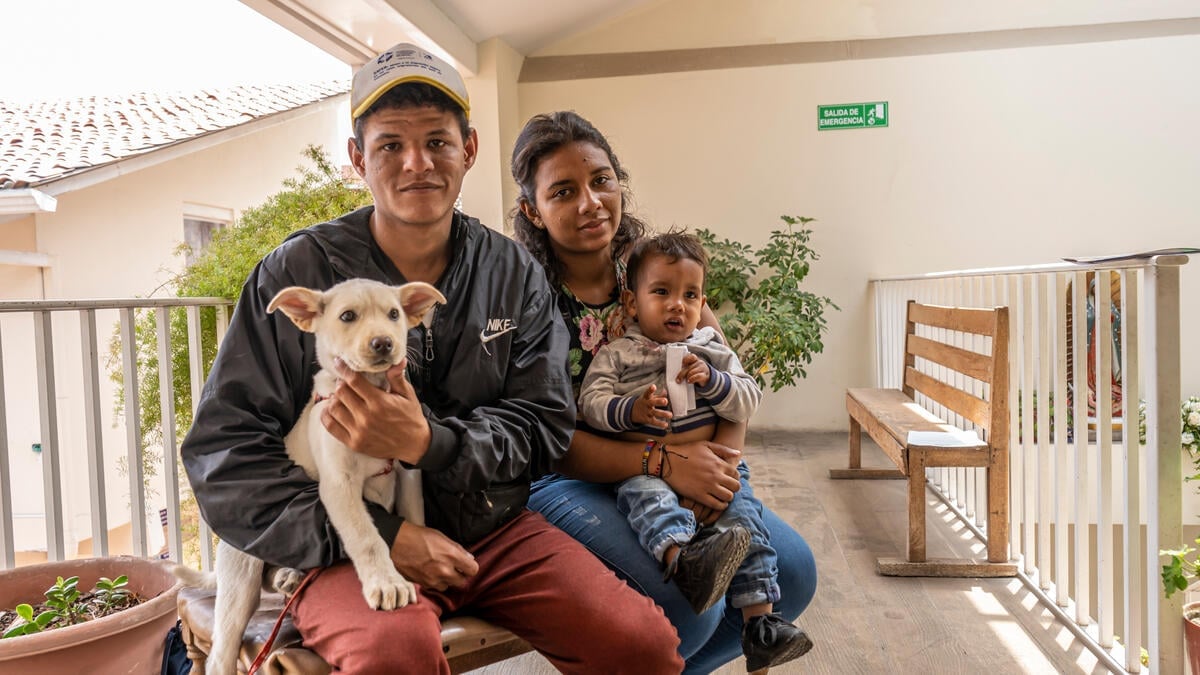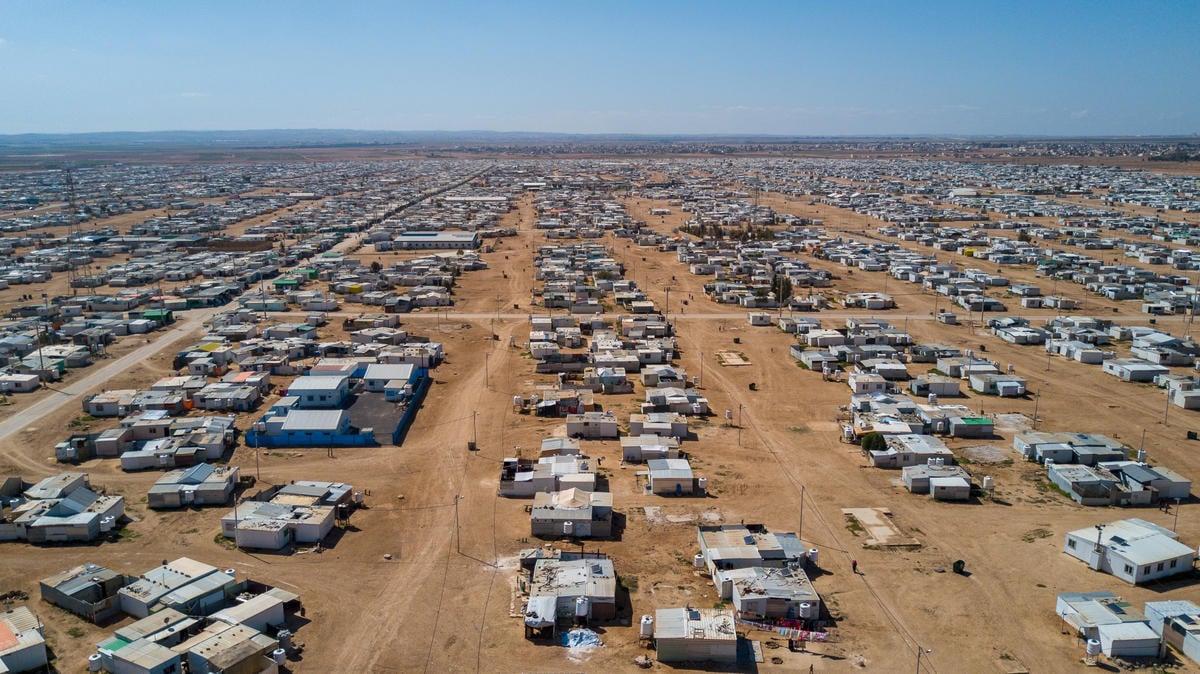Former Syrian TV chef whets appetite of Paris fashion fans

Former Syrian TV chef whets appetite of Paris fashion fans
The flavours and colours of Middle Eastern cuisine were on the menu at the Kenzo catwalk show at the recent Paris Fashion Week, thanks to 36-year-old former Syrian television chef Mohammad El Khaldy, a refugee who sought asylum in France just a short time ago.
The fashion world elite casting an eye over this year’s ready-to-wear styles at the renowned fashion house enjoyed specialities such as baba ganoush, fattoush, kibbeh and baklava.
The event was the latest to showcase the skills of a man who was once prosperous and well-known in his home country before civil war drove him and his family to flee to safer shores.
Last June, Mohammad cooked with French chef Stéphane Jégo as part of the French capital’s Refugee Food Festival. The pair devised a new style of cooking at the Left Bank restaurant l’Ami Jean, where Jégo is the chef and owner, combining French and Syrian recipes.
Kenzo had heard about Mohammad and contacted the Refugee Food Festival. He was selected to cook at the catwalk show after a competing with another chef.
He has also cooked at receptions at the Palais de Tokyo Museum and at Paris City Hall for an event attended by the mayor of Paris, Anne Hidalgo.
It is a far cry from the life he led just a few years earlier, when he owned several restaurants and appeared regularly on cooking shows on television in Syria and Dubai. He bought a house for his family in 2011 and was able to pay for the education of his three sons. He and his wife Doha, a teacher, enjoyed a happy family life.
Then conflict erupted in Syria in 2011, turning his world upside down. “We started to hear the dangerous stories,” Mohammad said. “We saw people dying, people moving out of homes.”
“We thought we would come back. We thought it would take only a few days, months maybe.”
As thousands, then millions, fled, they joined the exodus. They took just a few clothes and personal belongings and the limited amount of cash, US$400, they were allowed to withdraw from the bank and left for Lebanon. They were sure they would return soon. Their youngest son, Adam, was just three months old.
“We took a bag, gold jewels I had bought to my wife,” Mohammad said. “We thought we would come back. We thought it would take only a few days, months maybe.”
They were unaware at the time that it was just the beginning of their journey in exile.
Believing they would be safer In Egypt, he went there alone to try to start a restaurant. After a period of separation while he tried to establish a business, his family joined him, but he and Doha decided to try to make a new start in Europe after his restaurant venture was thwarted by a series of misfortunes.
After a gruelling, 12-day journey on an overcrowded boat heading from Alexandria to Italy, they were picked up thanks to the Italian government’s Mare Nostrum search-and-rescue operation.
“I was looking for the safety of my children,” Mohammad said. “They had many questions. Adam was telling me that he wanted an apple. Every time he asked me, I cried. I cried every night, but I had my wife, Doha, my lifetime friend. She supported me.”
He was full of praise for the welcome they received in Italy. “We looked like homeless. We were homeless. Many people came to help. A very old man gave us food. In the bag, there was an apple I gave to Adam.”
Eventually they reached France, where they were granted refugee status in 2015.
“Paris was my dream place to work. Paris is the mother of service, cuisine, the famous capital of hospitality, fashion, food, gastronomy. If you put Paris on your CV, you are a professional. This is what we say in Arab countries.”
They were housed at a reception centre in Savigny-sur-Orge, on the outskirts of Paris, where they waited for their asylum application to be granted. Mohammad gave cooking lessons to the social worker assigned to his case, Carole. “She taught me how to speak French, I taught her how to cook.”
Carole told him about an organization called “les Cuistots Migrateurs” (“the migrant chefs”), a venture created by French entrepreneurs Louis Jacquot and Sébastien Prunier, who are trying to change the way Parisians view immigrants by introducing the French to the best of the newcomers’ home cuisines.
The pair tracked down trained chefs among the thousands of people granted asylum in France. They then gathered a small group to form a catering company specializing in lesser-known cuisines.
“Syria is my love, my mother, my wife. I can’t find the words to tell you what Syria means for me. But today, we cannot return.”
The group provided most of the chefs that took part in the Refugee Food Festival, including Mohammad, who was one of the first to join the project. Eleven restaurants in Paris opened their kitchens to chefs from Syria, Sri Lanka, Chechnya, Iran and India for the event.
“What I like more in cooking is the very first taste, when people say ‘mmmm’,” Mohammad said.
His children – Adam, now aged 6, and his brothers Omar, 13, and 10-year-old Ziad – speak French fluently and attend school in Paris. Doha, 36, hopes she can return to teaching. Mohammad’s mother, whom he hadn’t seen for four years, obtained a visa and joined them a few weeks ago, reuniting the family once again.
He said he wanted to learn as much about France as he could, and also to share his culture and use his talents “to live in harmony with the people who have welcomed us.”
However, Mohammad still dreams of going back to Syria.
“Syria is my love, my mother, my wife. I can’t find the words to tell you what Syria means for me. But today, we cannot return.”
















